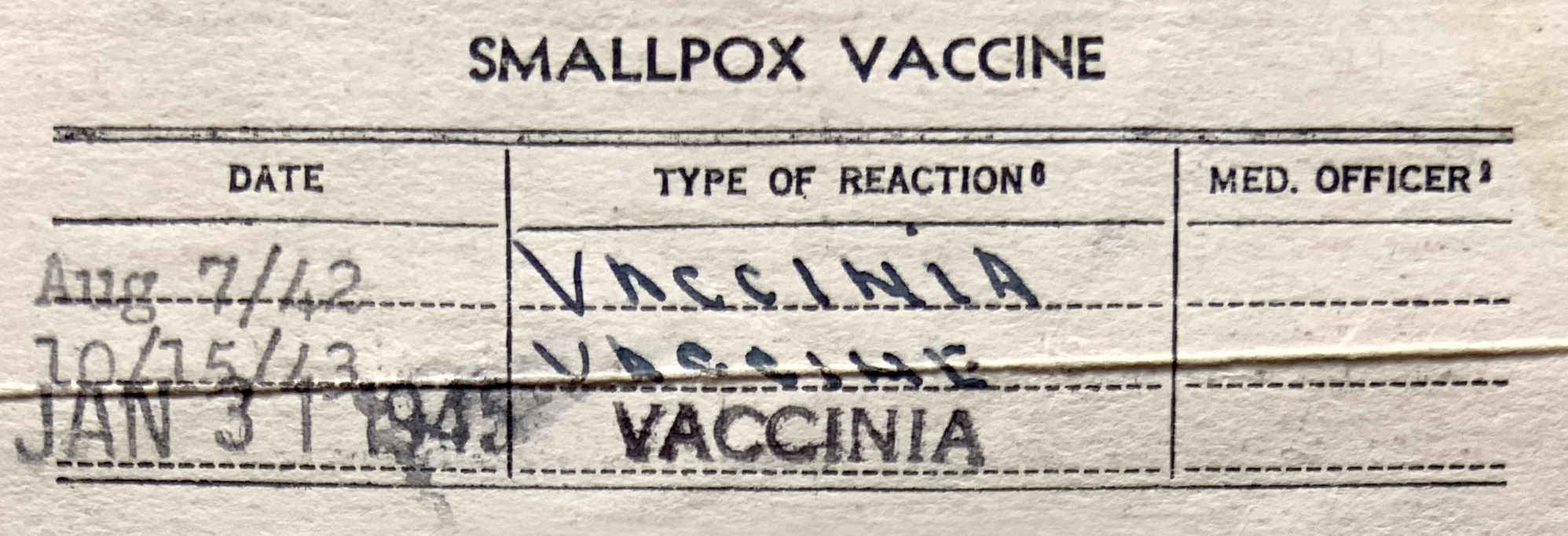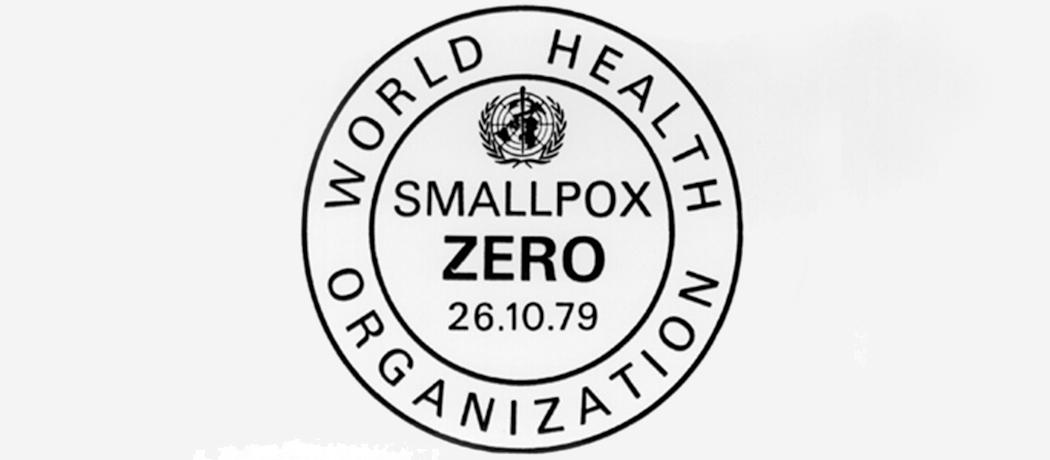I started my medical practice on the North Shore of Vancouver in the summer of 1956 as a general practitioner—at that time truly a family physician, with house calls, office visits, and hospital care of kids, parents, and grandparents. I still had a lot of free time in the first year as my practice grew and was hired by public health people to vaccinate North and West Vancouver schoolkids in the context of the then-regular vaccination programs against smallpox, diphtheria, tetanus, pertussis, and, later, polio. Smallpox vaccination was a bit technical; I dipped a needle with two small prongs in the vaccine fluid, deposited a drop of the vaccine on the upper arm, and then gently scratched the drop into the skin.

A smallpox vaccination record from the 1940s
The memory of all that came to my mind when I heard that the World Health Organization (WHO) is celebrating its 75th year on 7 April 2023. And celebrate it should—if nothing else, for the unprecedented and concerted effort of guiding the joint efforts of many countries, including Russia and the United States, that led to the total eradication of smallpox by 1980. Smallpox was the oldest and deadliest infectious disease known to humans. Even in the first half of the 20th century, smallpox deaths worldwide were estimated to be 300 million.
In Canada we have another reason to celebrate when we talk about the work of the WHO. In 1948, Dr Brock Chisholm (1896–1971), a native of Ontario, a psychiatrist, a medical administrator, and director-general of the Canadian army’s medical services, became the founding director-general of the WHO. In his earlier military career, Dr Chisholm highlighted mental health as an important factor in the selection and placement of army personnel. In his new position, he offered his definition of health as “a state of complete physical, mental and social well-being and not merely the absence of disease or infirmity.” He insisted that the WHO serve the “world citizen” and see past national borders and histories. Dr Chisholm oversaw worldwide efforts to control diseases such as malaria, cholera, tuberculosis, and sexually transmissible infections, and to standardize drugs around the world. He was an early leader in warning of the danger of pollution, overpopulation, and the nuclear arms race.
Today the WHO is a permanent part of the United Nations—essentially its public health agency. It deals with major health issues of the world. It sets standards for disease control, health care, and medicine. It conducts education and research programs and publishes scientific reports. It connects nations and people to promote health and serve the vulnerable.
Let us raise a glass to the WHO on its 75th anniversary.
—George Szasz, CM MD
Suggested reading
Charles J. Origins, history, and achievements of the World Health Organization. BMJ 1968(2):293-296.
Griffin JDM, Baker N. Brock Chisholm. The Canadian Encyclopedia. Accessed 3 April 2023. www.thecanadianencyclopedia.ca/en/article/brock-chisholm.
World Health Organization. History of the smallpox vaccine. Accessed 3 April 2023. www.who.int/news-room/spotlight/history-of-vaccination/history-of-smallpox-vaccination.
The World Health Organization’s Smallpox Eradication Logo is courtesy of Wikimedia Commons user ChiefWanag and is used under the Creative Commons Attribution-Share Alike 3.0 Unported licence.
This post has not been peer reviewed by the BCMJ Editorial Board.
 |
| This work is licensed under a Creative Commons Attribution-NonCommercial-NoDerivatives 4.0 International License. |

